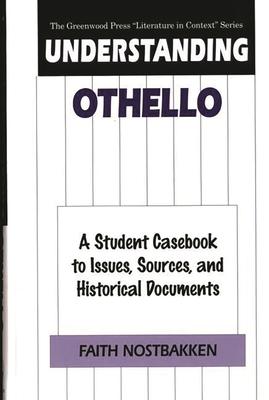Although Othello has been one of Shakespeare's most popular plays, its performance history has been marked with risk and tension because of the play's focus on racial prejudice, gender conflict, and sexuality. The controversies surrounding conflicting attitudes toward race and religion, love and marriage, and war and the military in Shakespeare's time are reflected in the tragic plot and thematic ambiguities of Othello. This interdisciplinary casebook is designed to help students and their teachers explore the historical and modern issues related to the play. By combining primary documents with commentary, this guide considers many theatrical, cultural, social, and political concerns at the core of Othello. A literary analysis chapter addresses such topics as the nature of tragedy, the source of the play, and the richness of Othello's language, imagery, and thematic patterns. Three chapters on historical context consider attitudes toward race, love and marriage, and the role of the military in Shakespeare's time, revealing some of the social and political controversies reflected in Othello. A discussion of performance and interpretation traces the ways that changing cultural values and artistic expectations have affected the popularity and interpretation of Othello on stage, in film, and in literary criticism over the centuries. A final chapter on contemporary applications expands the focus of discussion to explore how Othello might reflect and challenge perspectives on contemporary stories, including both factual events recorded in newspaper headlines and fictional plots drawn from a variety of storylines in literature.
Primary documents include excerpts from Renaissance travel journals, Elizabethan marriage and military conduct books, dramatic criticism and actors' journals, poetry, fiction, and recent newspaper articles and editorials relating to the trials of O. J. Simpson and the Unabomber. Numerous suggestions for written assignments, oral discussion, and further readings offer additional practical and creative ideas for examining the diverse topics of Othello.
Understanding Othello: A Student Casebook to Issues, Sources, and Historical Documents
Although Othello has been one of Shakespeare's most popular plays, its performance history has been marked with risk and tension because of the play's focus on racial prejudice, gender conflict, and sexuality. The controversies surrounding conflicting attitudes toward race and religion, love and marriage, and war and the military in Shakespeare's time are reflected in the tragic plot and thematic ambiguities of Othello. This interdisciplinary casebook is designed to help students and their teachers explore the historical and modern issues related to the play. By combining primary documents with commentary, this guide considers many theatrical, cultural, social, and political concerns at the core of Othello. A literary analysis chapter addresses such topics as the nature of tragedy, the source of the play, and the richness of Othello's language, imagery, and thematic patterns. Three chapters on historical context consider attitudes toward race, love and marriage, and the role of the military in Shakespeare's time, revealing some of the social and political controversies reflected in Othello. A discussion of performance and interpretation traces the ways that changing cultural values and artistic expectations have affected the popularity and interpretation of Othello on stage, in film, and in literary criticism over the centuries. A final chapter on contemporary applications expands the focus of discussion to explore how Othello might reflect and challenge perspectives on contemporary stories, including both factual events recorded in newspaper headlines and fictional plots drawn from a variety of storylines in literature.
Primary documents include excerpts from Renaissance travel journals, Elizabethan marriage and military conduct books, dramatic criticism and actors' journals, poetry, fiction, and recent newspaper articles and editorials relating to the trials of O. J. Simpson and the Unabomber. Numerous suggestions for written assignments, oral discussion, and further readings offer additional practical and creative ideas for examining the diverse topics of Othello.